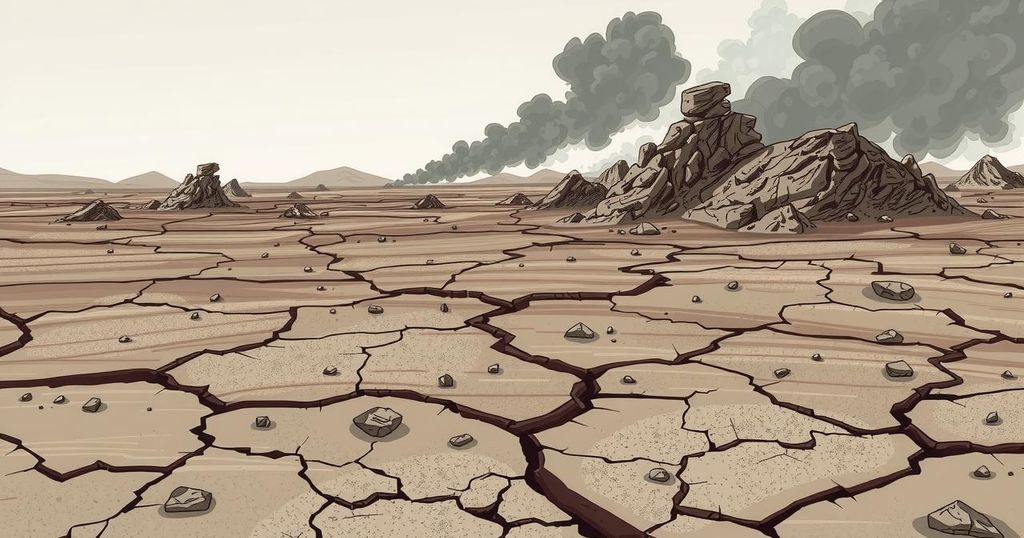Clashes erupted between Hayat Tahrir Al Sham and Hezbollah on the Syrian-Lebanese border after three Syrian soldiers were reportedly killed by Hezbollah. This escalation underlines ongoing tensions despite diplomatic efforts. Sporadic clashes continue as both factions engage, raising concerns over potential further conflict.
Clashes erupted on Monday along the Syrian-Lebanese border involving Hayat Tahrir Al Sham (HTS) troops and Hezbollah fighters following the death of three Syrian soldiers. This incident marks a significant escalation in conflict, occurring despite ongoing diplomatic efforts to mend relations between the two governments. The Syrian Defence Ministry reported that Hezbollah allegedly abducted and executed the soldiers near the Zita dam in Homs, a claim which Hezbollah has denied.
Reports suggest sporadic clashes are ongoing, with some footage released by pro-Syrian government channels showing HTS fighters launching rockets at Hezbollah positions. Notably, a Syrian tank was reportedly hit during these confrontations. A senior Lebanese security official indicated that attempts are being made to control the situation and prevent further deterioration of conflict, although the exact reasons for the escalation remain unclear.
The Lebanese official added that it could involve either Syrian fighters crossing into Lebanon or Hezbollah fighters entering Syria, creating complexities in the situation. Furthermore, groups aligned with HTS in Lebanon reportedly possess capabilities to strike Hezbollah, raising the potential for an increased cycle of violence. This development poses significant implications for regional stability and the ongoing geopolitical tensions in the area.
In summary, the recent clashes on the Syrian-Lebanese border, triggered by the killing of three Syrian soldiers, highlight growing tensions between HTS and Hezbollah. Despite efforts to stabilize relations, the potential for further escalation remains as both groups possess capabilities to engage militarily across the border. Continued monitoring and diplomatic efforts will be essential to avoid a wider conflict.
Original Source: www.thenationalnews.com






